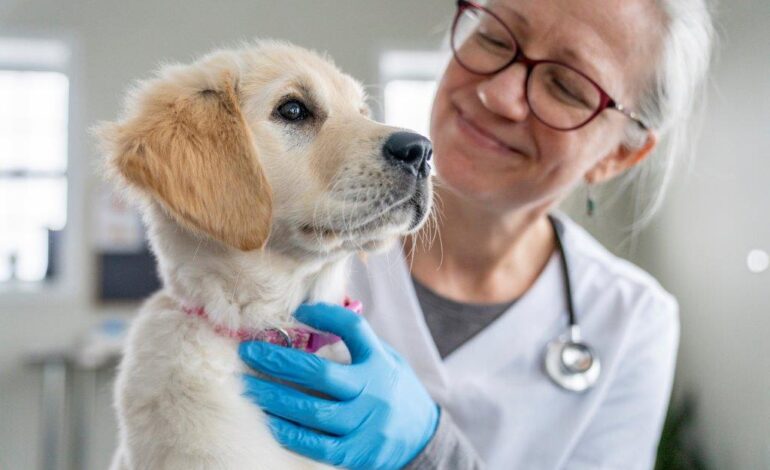Vet-approved tips to maintain your pets’ dental health

In the same way that humans need to have regular dental checkups to prevent serious oral disease, so do our pets.
Research has shown that the bacteria in the mouth can contribute to heart disease, plus pets can suffer broken teeth, gum disease, bleeding gums and less commonly, cancer in the mouth.
Dr Renee Lezama-Driscoll of Sapphire Vets, Piarco shared what pet owners should know about caring for their pets’ teeth.
Never feed your pets hard bones as these can fracture teeth in addition to causing other problems.
Start dental care from young: It’s difficult for some older animals to adapt to an oral health routine if they are afraid of the brush or don’t want someone in their mouth. From around three months old, owners should get into the habit of lifting the lips and touching the teeth so that pets get accustomed to the practice.
Never use human toothpaste: Use a soft pet toothbrush and a pet enzymatic toothpaste (human toothpaste can be toxic). In the event that pets don’t like the toothpaste, you can still do a very good job with just water.
If your pet isn’t on board with a toothbrush, consider a finger brush (a silicone brush made to slip onto a finger) or even gauze which can be wrapped around the finger.
Rinse your pet’s toothbrush under hot water or with a little soap and water after each use. Brushes should be changed around 3 – 5 months. If using gauze, then change daily.
Brush pets’ teeth at least 2-3 times weekly: A checkup at a veterinary clinic tends to be every three – six months, so owners have a duty to help keep their furry friends healthy. Professional dental cleaning should be done around six months – one year depending on the issues.
Add dental products to pets’ routine: Dental products like treats, sprays or water additive can enhance pets’ dental routine. When choosing these items, look for the VOHC (Veterinary Oral Health Council) seal on the package to ensure that it actually works and isn’t unverified advertising. Use the amount recommended by the product to achieve the best results.
If you notice that your pet has a reddened gumline, swelling around the mouth and dark or discoloured build up on the teeth (tartar – which will not come off with brushing), schedule a dental checkup with a registered veterinarian. A thorough dental checkup is best done under general anaesthesia, so pets will need to meet the pre-check requirements such as blood analysis.





